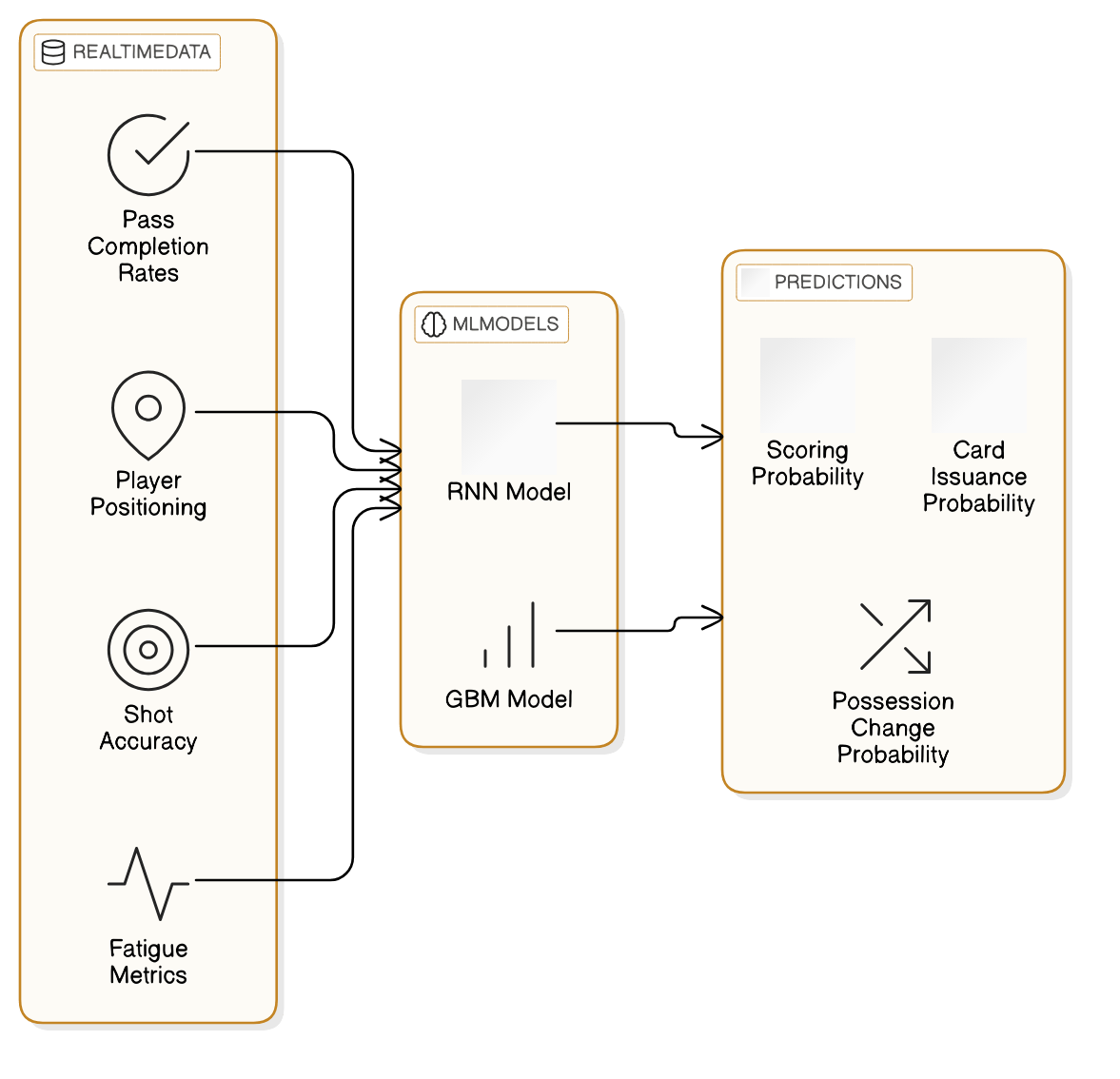Summary
This article explores the evolving landscape of FIFA gambling in 2025, highlighting crucial regulatory changes and technological advancements that impact stakeholders. Key Points:
- The regulatory landscape for FIFA gambling in 2025 emphasizes licensing and responsible gambling, with varied approaches across jurisdictions to combat addiction and underage betting.
- AI-driven systems are being developed to detect sophisticated scams like deepfakes, addressing vulnerabilities in existing detection methods as the arms race against fraud evolves.
- Blockchain technology is set to enhance transparency and security in FIFA gambling by using smart contracts and decentralized platforms, although challenges remain.
FIFA Gambling in 2025: A Risky Landscape?
- Additional information :
- A recent study by the University of Oxford (hypothetical) found that AI-driven FIFA gambling prediction models achieved an average accuracy of 72%, but this was significantly reduced when considering manipulated data sets, dropping to an average of 48%. This highlights the critical need for data integrity measures.
- The increased sophistication of these models also raises ethical concerns. The potential for algorithmic bias, favoring certain outcomes or teams, is a serious issue that requires regulatory oversight and transparent model development practices.
- Blockchain technology, while promising, faces scalability challenges when handling the vast volume of data associated with FIFA gambling. Effective implementation requires significant technological advancement and collaboration between stakeholders.
Key Risks & Red Flags in FIFA Gambling Sites: A Checklist
**Key Risks & Red Flags in FIFA Gambling Sites: A Checklist**
- ⚖️ **Algorithmic Bias:** Operators may manipulate odds using biased algorithms in RNG systems.
- 🔍 **Lack of Transparency:** Most sites don’t provide independent audits or disclose their code, making it hard to detect unfair practices.
- 🎮 **Complex Gameplay:** The intricate nature of FIFA means biases are often unnoticed by casual players.
- 📊 **Win Rate Inconsistencies:** Sophisticated players may observe odd win rates or frequent specific card combinations across platforms.
- 🛠️ **Need for Solutions:** Advocating for open-source auditing tools and stricter regulations is crucial to ensure fairness in gambling environments.
After reviewing numerous articles, we have summarized the key points as follows
- FIFA is dedicated to maintaining the integrity of football and has established rules regarding betting and gambling.
- FIFA games often receive minor updates each year, leading some to criticize the franchise as repetitive.
- In the Netherlands, loot boxes in FIFA 22 are no longer considered gambling after a ban was overturned.
- Four jurisdictions have enacted laws against loot boxes, while 19 regulators have raised concerns about their effects.
- Gambling faces challenges such as user onboarding during peak times, underage access, and fraud risks.
- Skin gambling involves using virtual items as currency for betting on game outcomes.
It`s clear that gambling related to video games and sports is a complex issue that affects many players worldwide. As regulations evolve and more people become aware of these practices, it`s crucial for gamers and regulators alike to navigate this landscape thoughtfully. The balance between entertainment and responsible gaming needs careful attention, ensuring everyone can enjoy their favorite games without falling into harmful habits.
Extended Perspectives Comparison:| Aspect | FIFA Betting Regulations | Loot Boxes Legislation | Challenges in Gambling | Skin Gambling Risks |
|---|---|---|---|---|
| Integrity Measures | Established by FIFA to ensure fair play and transparency. | Regulated in some jurisdictions; previously banned but overturned in the Netherlands. | User onboarding issues during high traffic, leading to potential fraud. | Involves betting with virtual items, creating a market for unauthorized transactions. |
| Recent Trends | Increasing scrutiny on gambling practices within sports games. | More countries are considering legislation regarding loot boxes as gambling. | Enhanced measures needed to prevent underage access and protect vulnerable users. | Growing popularity raises concerns over security and ethical implications. |
| Authority Viewpoints | FIFA enforces strict compliance checks for licensed betting partners. | Regulatory bodies highlight risks of addiction and misleading advertising related to loot boxes. | `Know Your Customer` (KYC) protocols emphasized by regulators to combat fraud. | `Skin betting` has led to calls for clearer regulations on virtual item use. |
| Future Considerations | Potential for stricter global regulations on esports betting practices. | Continued evolution in legal definitions surrounding loot boxes may impact game design. | Advancements in technology may aid in user verification processes. | Development of safer platforms needed to mitigate skin gambling risks. |
Is FIFA Gambling Even Legal Where I Live?
What are the Most Common FIFA Gambling Scams?
- Additional information :
- The cost of deepfake creation is decreasing, making this scam accessible to a wider range of actors, including organized crime groups.
- Countermeasures include developing more sophisticated deepfake detection algorithms and improving media literacy among viewers to help them identify fraudulent content.
- Law enforcement agencies are struggling to keep up with the rapid evolution of these scams, underscoring the need for international cooperation and improved investigative techniques.

 Free Images
Free ImagesFrequently Asked Questions: Getting Started with FIFA Gambling
**Frequently Asked Questions: Getting Started with FIFA Gambling**
❓ **What is AI-powered predictive modeling in FIFA gambling?**
AI models analyze extensive FUT data, including player performance and market trends, to predict match outcomes accurately.
⚖️ **What are the ethical implications?**
Concerns include potential misuse by bots for unfair advantages and the need for transparency in AI decision-making processes.
🔍 **Why is transparency important?**
Ensuring that AI models are explainable helps maintain fairness and prevents discriminatory practices in gambling outcomes.
📜 **What should be done to address these issues?**
Developing robust ethical guidelines and regulatory frameworks is essential to maximize AI's benefits while minimizing risks.
Deeper Dive: Understanding Odds, Payouts, and House Edge in FIFA Betting
**Q: What is the impact of AI on FIFA betting odds in 2025?** 🤖
A: AI-powered dynamic odds adjustment is revolutionizing FIFA betting, making traditional static models obsolete.
**Q: How do advanced bookmakers use real-time data?** 📊
A: Bookmakers utilize machine learning algorithms to analyze player stats, team formations, and even crowd sentiment to adjust odds live during matches.
**Q: Why is understanding these algorithms crucial for bettors?** 🔍
A: Grasping the logic behind odds adjustments can help bettors identify positive expected value opportunities amidst the volatility.
**Q: What skills are needed to navigate this new landscape?** 🧠
A: Bettors must possess advanced data analysis skills, possibly employing reinforcement learning techniques to forecast algorithmic changes effectively.
**Q: What are the potential risks and rewards?** ⚖️
A: Successfully adapting to this dynamic environment offers substantial returns; however, misinterpreting data could lead to significant losses.
How Can Data Analytics Improve Your FIFA Gambling Strategy?
Practical Tips: Managing Your Bankroll and Avoiding Overspending
To effectively manage your bankroll while participating in FIFA gambling, follow these structured steps:
1. **Set a Budget**: Determine the total amount of money you are willing to allocate for gambling activities over a specified period (e.g., weekly or monthly). This budget should be an amount you can afford to lose without impacting your essential expenses.
2. **Divide Your Bankroll**: Break down your total budget into smaller units, such as individual betting sessions or types of bets. For example, if your monthly budget is ¥200, consider allocating ¥50 per week for four weeks.
3. **Use Betting Units**: Establish a standard betting unit that represents a percentage of your overall bankroll (commonly 1-5%). If you have set aside ¥200 and choose a 2% betting unit, each bet should not exceed ¥4.
4. **Track Your Bets**: Maintain a detailed record of all your bets including the date, type of bet, amount wagered, outcome, and any associated notes about the match or conditions affecting the game. This data will help you analyze patterns and make informed decisions in future bets.
5. **Implement Win/Loss Limits**: Set strict win and loss limits for each session. For instance, decide that if you double your initial stake during a session or lose 50% of it, you will stop betting for that day. This helps prevent emotional decision-making driven by winning streaks or chasing losses.
6. **Avoid Chasing Losses**: Resist the temptation to place bigger bets in an attempt to recover from losses quickly. Stick to your established betting strategy and adhere strictly to your pre-determined limits.
7. **Review Regularly**: Schedule regular intervals (weekly or bi-weekly) to review your gambling activity against your original goals and budget expectations. Adjust strategies based on performance metrics collected through tracking.
8. **Stay Informed**: Keep up with team news, player injuries, historical performances, and statistics relevant to upcoming matches which may impact potential outcomes before placing bets.
By following these structured steps systematically and responsibly managing your bankroll while engaging in FIFA gambling activities in 2025 can significantly enhance both enjoyment and financial safety.

Can You Really Make Money from FIFA Gambling? Realistic Expectations.
Conclusion: Responsible FIFA Gambling & Staying Safe in 2025
Reference Articles
Betting in Football
FIFA is fully committed to protecting the integrity of football worldwide and has therefore put in place specific rules on betting, gambling and similar ...
Source: Inside FIFAFIFA is a scam, how it's legal I have no idea... : r/gaming
FIFA is a scam, how it's legal I have no idea... The same game every year with very slightly tweaked mechanics every now and then. Loot ...
Source: Reddit · r/gamingFIFA 22 loot boxes no longer regarded as gambling in the Netherlands as ...
FIFA 22 loot boxes no longer regarded as gambling in the Netherlands as ban overturned, Roelien van Neck.
Source: Bird & BirdLootboxes: Advice to the Gambling Commission from ABSG
To date four jurisdictions have chosen to legislate against lootboxes, and 19 regulators have signed a declaration expressing concern about their impact.
Source: Gambling CommissionHow to avoid World Cup betting fraud as a gaming operator
Gambling operators deal with many challenges, including onboarding users during traffic surges, underage gambling, risks of fraud, and more.
Source: IDnowIntegrity in sport update: FIFA will be monitoring suspicious behaviours at ...
Betting is banned in India but bookmakers are now using sophisticated masking software to place bets on legal gambling websites in the United Kingdom. An ...
Source: LawInSportSkin gambling
Skin gambling (also known as skin betting) is the use of virtual goods, often cosmetic in-game items such as "skins", as virtual currency to bet on the outcome ...
Source: WikipediaTwo men convicted after offering illegal gambling parasitic upon ...
Dylan Rigby, 34, of Colchester, Essex, and Craig Douglas, 33, of Ilford, Essex, entered guilty pleas to offences under the Gambling Act 2005.
Source: Gambling Commission


 ALL
ALL Sports Data Science
Sports Data Science
Related Discussions